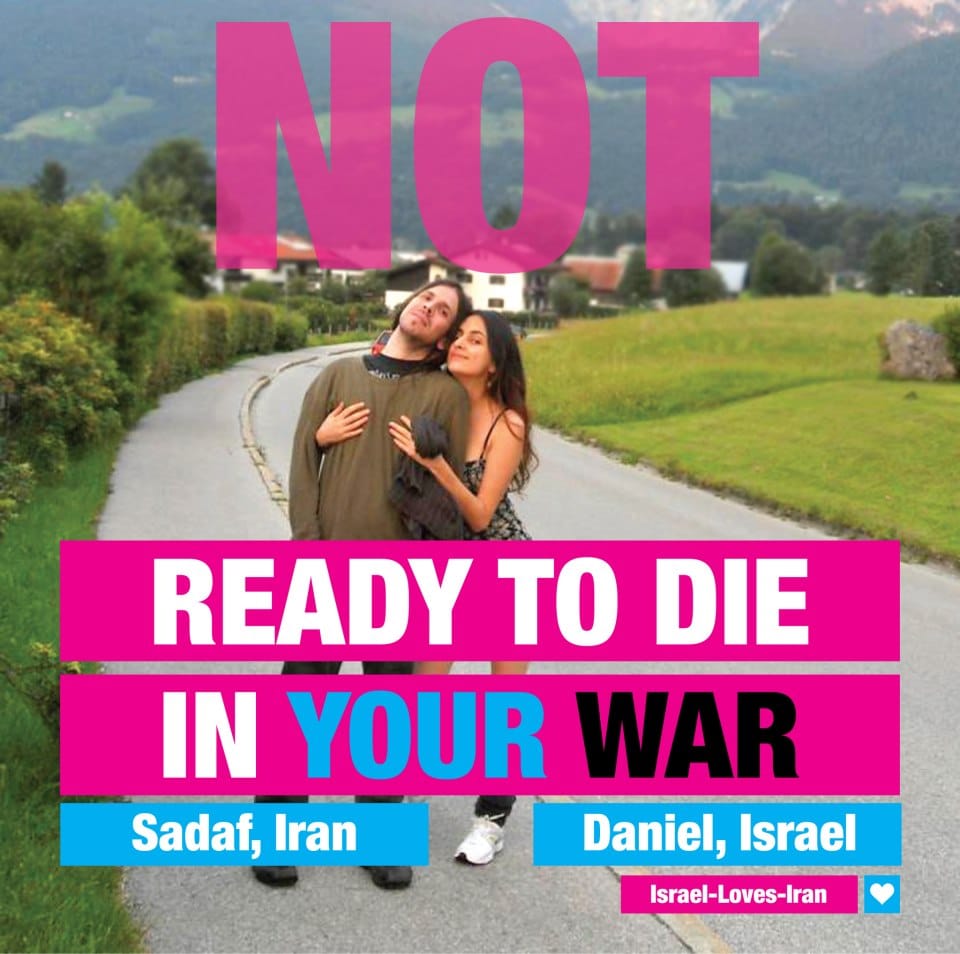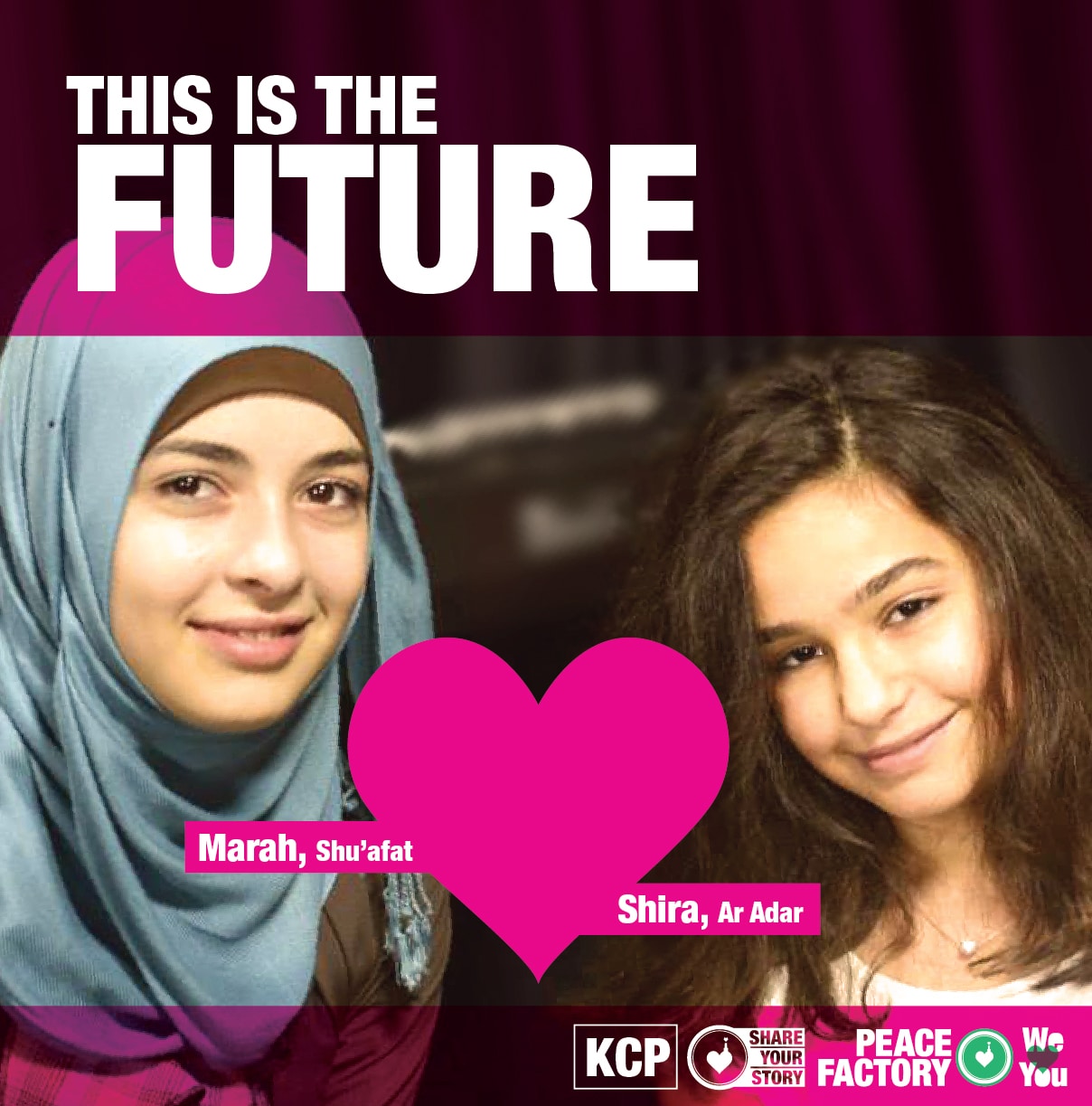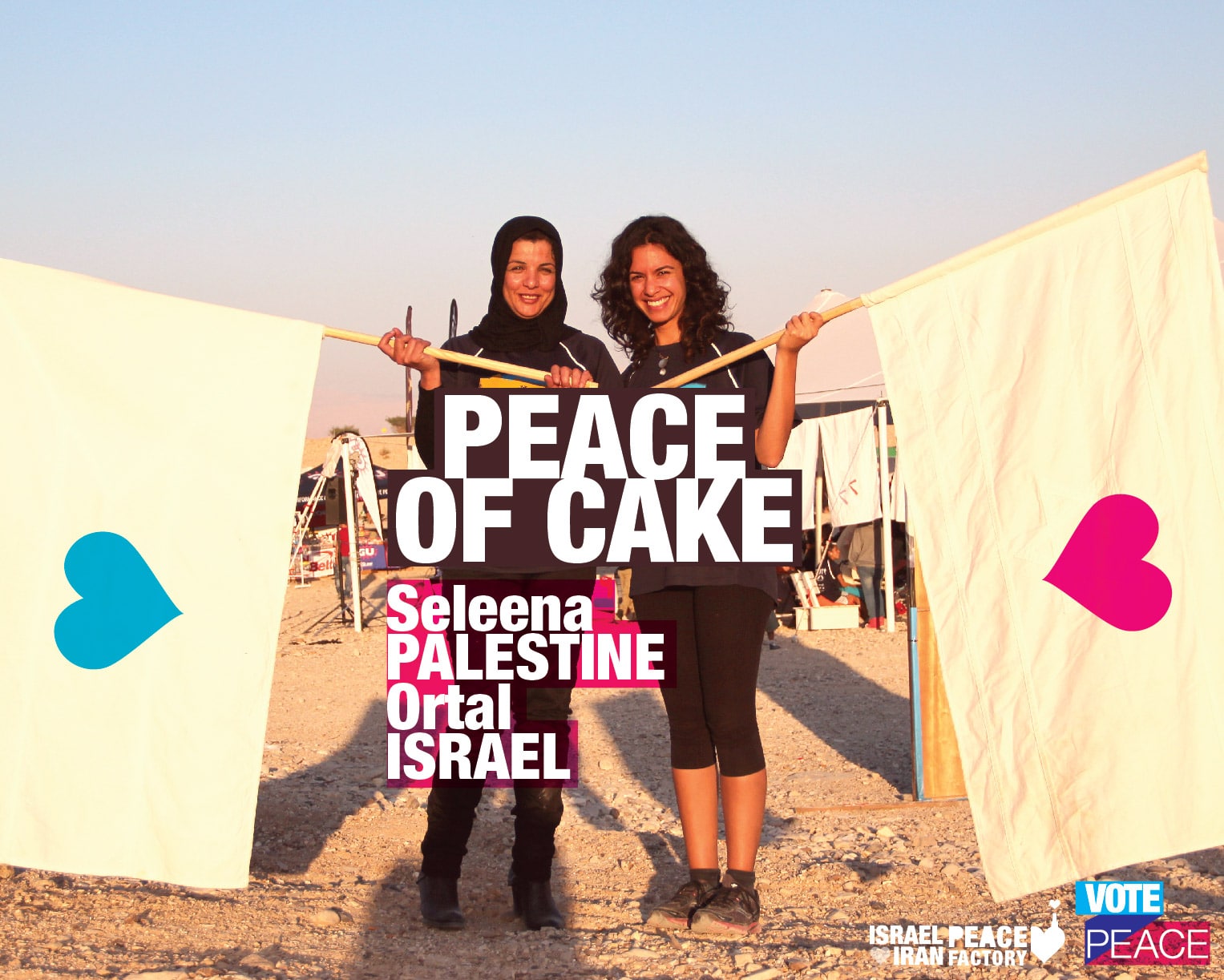Israel (Tel Aviv)
In March 2012, two graphic designers and teachers living in Tel Aviv, Israel declared their love for Iran on Facebook. The Israel-loves-Iran message simply read: “Iranians, we will never bomb your country. We love you.”
Having had enough of divisive rhetoric from politicians, Ronny Edry and his wife Michal Tamir were pretty sure Israeli and Iranian people could like each other. Within 48-hours Iran had reciprocated with an Iran-loves-Israel page. Peace messages were going viral: “Joujou, the Palestinian Administrator for the Facebook page Palestine-loves-Israel is now family,” Ronny proudly tells us.
While some may call his social media post saccharine, naïve or counterproductive, as a soldier in a combat unit now living in a time of protests and rising hostilities, Ronny is hyper-aware of a feeling that all people living in the Middle East (Syria, Egypt, Lebanon) are not the enemy. “Facebook is designed to be in touch with your friends,” he says. “We try to use it to connect with what is perceived as ‘the enemy’. It’s a first step toward peace.”
The ‘loves’ stunt got tens of thousands of likes and was the spark for the couple’s Peace Factory, which now runs pacifist ‘marketing’ online and offline initiatives, including posting bus banners of love between Israelis and Iranians in Tel Aviv, the Sandbox, intimate short stories by people in the Middle East – from coming out as homosexual to being married off – and a matching system called Friend me for Peace that encourages Facebook ‘friending’ across conflict divides. Future plans involve a radio project, to enable people to hear what one another sounds like as well as looks like.
The projects often become cultural phenomena that expand across conflict pairs such as Palestine-Israel, Morocco-Iran, Pakistan-Israel and America-Iran. “Our goal is for every Israeli to have at least one Palestinian friend on Facebook as a starting point. The same goes with Iranians and the Middle East in general. When you talk with the other side, it’s hard to convince you that they are the enemy and it’s ok to go to war with them.”
The potential of personal sharing over social media is a low-resource complement to engaging in deeper, face-to-face discussions about identity. “When people don’t talk or know each other, war wins,” he says. “So we’ve got to use the best tool we’ve got – social media.”
Project leader
Ronny Edry
Support the Atlas
We want the Atlas of the Future media platform and our event to be available to everybody, everywhere for free – always. Fancy helping us spread stories of hope and optimism to create a better tomorrow? For those able, we'd be grateful for any donation.
- Please support the Atlas here
- Thank you!






